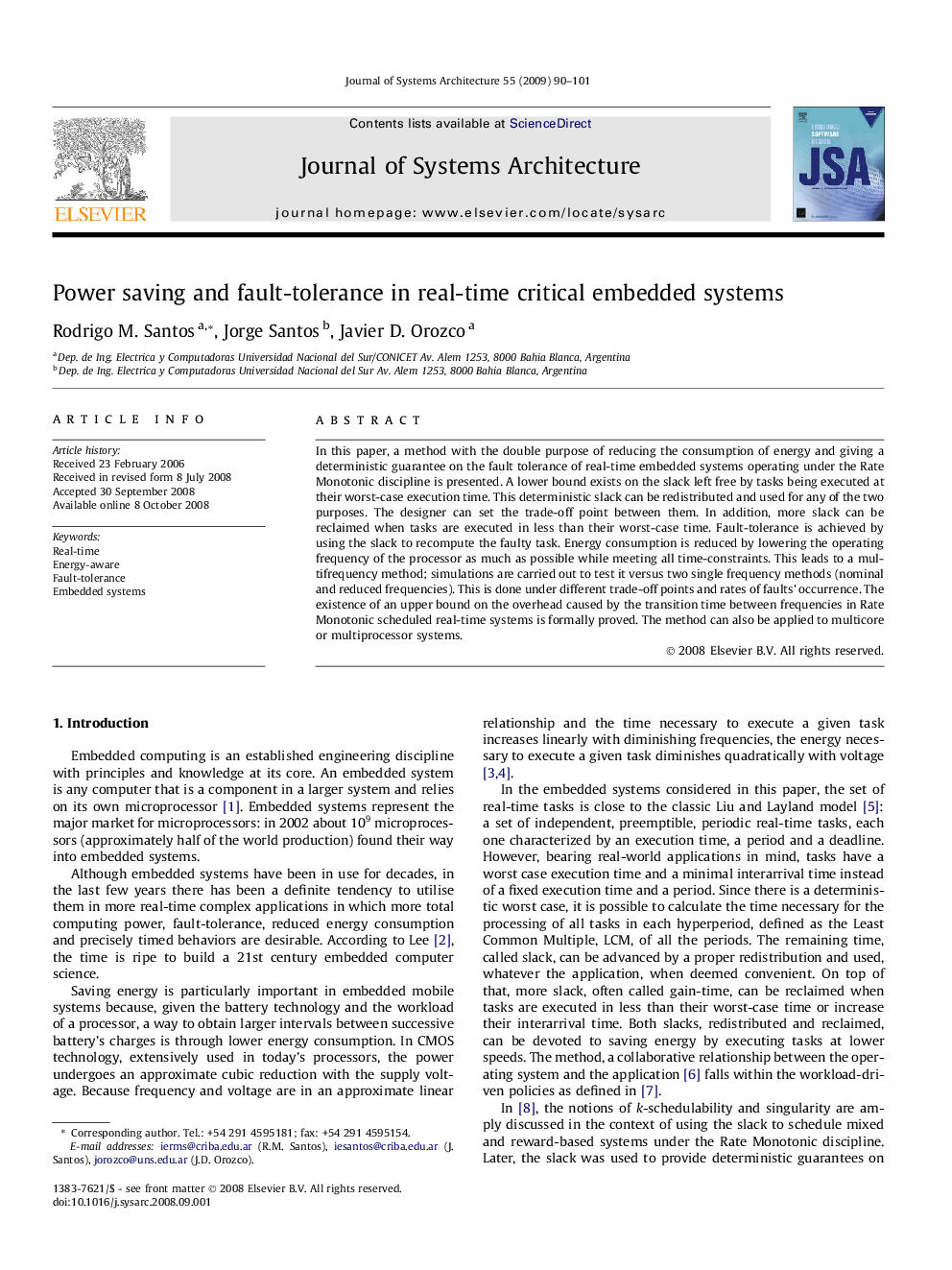| کد مقاله | کد نشریه | سال انتشار | مقاله انگلیسی | نسخه تمام متن |
|---|---|---|---|---|
| 457691 | 696019 | 2009 | 12 صفحه PDF | دانلود رایگان |

In this paper, a method with the double purpose of reducing the consumption of energy and giving a deterministic guarantee on the fault tolerance of real-time embedded systems operating under the Rate Monotonic discipline is presented. A lower bound exists on the slack left free by tasks being executed at their worst-case execution time. This deterministic slack can be redistributed and used for any of the two purposes. The designer can set the trade-off point between them. In addition, more slack can be reclaimed when tasks are executed in less than their worst-case time. Fault-tolerance is achieved by using the slack to recompute the faulty task. Energy consumption is reduced by lowering the operating frequency of the processor as much as possible while meeting all time-constraints. This leads to a multifrequency method; simulations are carried out to test it versus two single frequency methods (nominal and reduced frequencies). This is done under different trade-off points and rates of faults’ occurrence. The existence of an upper bound on the overhead caused by the transition time between frequencies in Rate Monotonic scheduled real-time systems is formally proved. The method can also be applied to multicore or multiprocessor systems.
Journal: Journal of Systems Architecture - Volume 55, Issue 2, February 2009, Pages 90–101